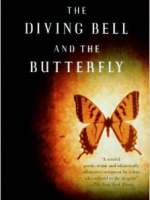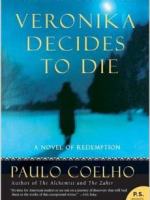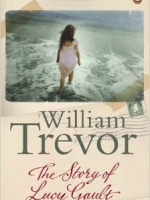(Published by Methuen)
 |
Oscar Wilde said: “A man’s face is his autobiography. A woman’s face is her work of fiction”. For Lucy Grealy, the former is true and the latter is possibly the reason why she was a writer at all. This IS an autobiography, but focuses on a specific aspect of the author’s life. That this aspect is her health will probably place the book in the same camp as sick lit/death lit books like Jean Dominique Bauby’s The Diving Bell and The Butterfly or Ruth Picardie’s Before I Say Goodbye. It’s not just about being ill though, because for Grealy living to tell the tale is almost as unbearable as the premature death (possibly by suicide) she suffered at 38.
Born in Ireland, her family immigrated to the US when she was a child. Her brothers missed home, hating the new country and this infiltrated their childhood insults – the acme of which was ‘that’s so American’, or worse ‘American-Bourgeois-Capitalist’. In contrast, Lucy coped well – until the age of nine when a toothache turned out to be Ewing’s Sarcoma, a rare form of bone cancer in her jaw. Most of her lower jaw was removed and thus began a nightmare journey through surgery, self-consciousness, pain and what she refers to as “the deep bottomless pit of grief called ugliness”.
The book is about much more than that; it would be far too bleak if it weren’t. With wit and honesty, she talks about her sense of self-perception; childhood illness and aesthetics, cancer and the concept of beauty. Far from being claustrophobic, it is as beautiful as it is terrifying to read. Such a close-up account of a life dominated by illness is harrowing, but it’s never self-pitying. Grealy has been accused of self-obsession but after 30 operations over 18 years, whose life wouldn’t be consumed by that?
Her accounts of being in hospital as a child are difficult to read, not least, if you’ve spent long periods of time in hospital as a kid (as I have): it reminds you – in unbelievable detail – of things you don’t like to remember. The day-to-day trappings of illness force her to rely on her mother, and this relationship is one of the most troubled, and touching, in the book. She equates being brave with being good, and says: “At a time when everything in my family was unpredictable and dysfunctional here I had been supplied with a formula of behaviour for gaining acceptance and, I believed, love. All I had to do was perform heroically and I could personally save my entire family.”
At school her disfigurement causes her to be constantly jeered and she is forced to eat her lunch alone in the career guidance counsellor’s office. “I felt safe and secure in that office, but I also felt lonely, and for the very first time I definitively identified the source of my unhappiness as being ugly.” After one of her many operations, she shares a ward with a woman who is having a mastectomy. Initially unsympathetic, (because she deems a breast more hidden than a face) Lucy eventually acknowledges the woman’s suffering. “Her feelings of ugliness consumed her as much as mine consumed me but there was no doubt she was beautiful. Her problems lay in her perception”.
Which sums up Lucy really – especially when you see a picture of her. She is svelte and attractive, with enquiring eyes set in a heart-shaped face full of hurt. A face she was only comfortable with in winter when she could wrap a scarf around it or at Halloween when she could hide it behind a mask.
The book’s title suggests that it was just her face that suffered. Her body also took the brunt of her treatment. Whether it was years of chemo making her ill to the point that she never fully grew, or her hair falling out, she was inextricably linked to her physicality. The multiple operations used skin grafts taken from her back, legs and stomach, and bone grafts from her hips. All of the transplanted tissue always dissolved away completely in her face so she experienced pain and accumulated scars for nothing. There is a frightening premonition of Grealy addicted to painkillers as a child, before her mother realises what’s going on. In the last couple of years of her life she moved from painkillers to heroin.
After doing well at college and garnering a reputation as a great poet, one last chance operation comes up near the end of the book and her response is heart-breaking: “How could I pass up this chance to fix my face, fix my life, my soul?” Illness is something that happens to people and the extent of it can make or break them. In the light of her early death in 2002 (eight years after the book was first published), maybe nothing could ever have mended such a scarred soul. We can only imagine her literary output if she had lived, but this book – like Lucy – is unforgettable.



